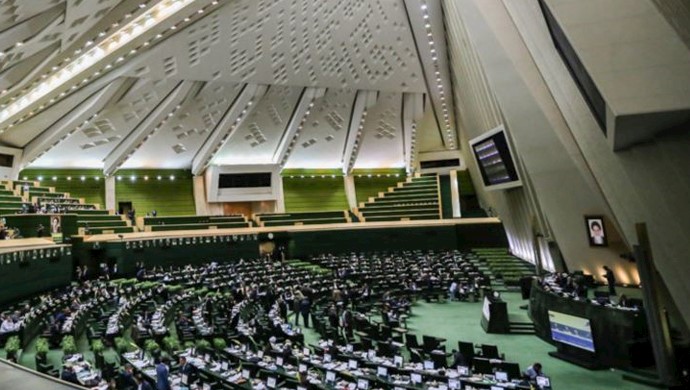Analysis by PMOI/MEK
Iran, February 2, 2020—At a convention of mayors and governors on January 27, Iranian regime president Hassan Rouhani displayed a new aspect of the power struggle between different regime factions.
“They say, go to a store and choose something to buy, and if there are only one brand and one kind item, then you don’t need to choose,” Rouhani said, indirectly attacking the Guardian Council, controlled by the supreme leader Ali Khamenei, for disqualifying members of his faction from participating in the upcoming elections.
Rouhani’s cronies took a step further, and in a statement titled “Report to the people,” published on the next day, said, “The outcome of the vote for 160 seats in the Majlis (parliament) has been predefined and there’s no competition, not even between the principalists. In 70 other seats, there will be a very weak competition.”
What this means is that the results of the elections are already clear. As Rouhani has said, “one brand and one kind of item.” In other words, the only brand is that of the mullahs, and the only items to buy are those that are approved by the supreme leader.
Rouhani’s goal
Rouhani has a history of playing with words to try to portray himself as a moderate figure. In the 2017 presidential elections, he used the term “38 years of torture and prison” to discredit his rival Ebrahim Raisi. Now, he’s using terms such as “engineered elections” to put pressure on his rivals and grab a larger share of power. He does not believe in any of the things he says, and a testament to the fact is his history with the mullahs’ regime, which is filled with repression and executions.
Rouhani’s real aim is to put pressure on Khamenei and to create the impression that the presence of the so-called “reformists” will make the elections more diverse and fair. But the reality is that regardless of their affiliation with any of the ruling factions of the regime, all MPs and candidates are vetted thoroughly for their loyalty to the fundamental principles of the regime.
Rouhani cannot stop Khamenei from disqualifying his candidates, and Khamenei cannot bring about a single-faction parliament under his complete control. The real winner of the regime’s election crisis is the Iranian people.#Iranhttps://t.co/ejWzlaDRsE
— People’s Mojahedin Organization of Iran (PMOI/MEK) (@Mojahedineng) January 29, 2020
According to MP Ahmad Tavakoli, who wrote to the Guardian Council on January 30, MPs “might cross a red light here and there” or even have differences with Khamenei, but in practice, they are “loyal to the regime.”
The real truth is that all 290 members of the Majlis want to preserve the Islamic Republic regime, which puts them at odds with the majority of the Iranian population, whose real desire is to topple the rule of the mullahs in its entirety. As the people have been chanting in their protests during the past months, “We don’t want the Islamic Republic,” “Death to the tyrant, be he the Shah or the supreme leader,” and “Reformists, principalists, the game is over.”
The meaning of the intensifying power struggle
This is not the first time that parliament seat-holders are being defined in advance. This is how the mullahs’ regime has been functioning for decades. But with the regime becoming weaker and more unstable, its key officials can’t find common ground to save their sinking ship, and what results is admission to the endemic corruption that plagues the regime.
And with Khamenei’s authority waning, he can’t hold his ranks together and away from each other’s throats. In a nutshell, even before happening, the February elections are proving to be an utter show of weakness and defeat for the regime.





